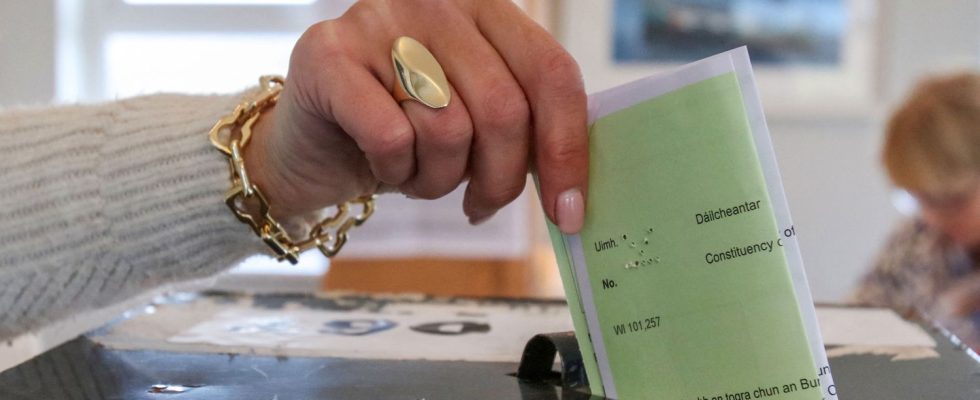Irish voters disapproved a modification of their country’s Constitution which notably intended to broaden the concept of family beyond the notion of marriage, and erase the priority role of mothers in ensuring “domestic duties” in a home.

Published
Update
Reading time: 1 min

The Irish have rejected the reform aimed at modernizing the references to women and the family in their country’s Constitution, drawn up in 1937 and heir to the long and strong influence of the Catholic Church on public and private life. “It was our responsibility to convince a majority of people to vote ‘yes’ and we failed to do so,” declared Prime Minister Leo Varadkar on Saturday March 9, while the results of the referendum, the wording of which had been widely criticized, have not yet been officially published.
A symbolic blow for women, and going against a political class whose main parties had defended “yes”, Irish voters thus disapproved a modification of the Constitution which notably intended to broaden the concept of family beyond the notion of marriage, and erase the priority role of mothers in ensuring “domestic duties” in a home.
A “very old-fashioned language about women”
But this referendum aroused little enthusiasm, with participation which did not exceed 50% in most of the 39 constituencies, according to estimates published by the Irish media.
Even before the Prime Minister spoke, several other members of the government had already conceded defeat, the Minister for Equality, Roderic O’Gorman, cited by the Irish Timessaying he was disappointed and regretted that people did not “did not see the urgency for change” of the Constitution.
Before the vote, Prime Minister Leo Varadkar estimated that a “no” victory would make “A step back” in the country. “It would send a message to many people that they are not a family under our Constitution,” he said, while it would be maintained “the very old-fashioned language about women in the home, and the duties of mothers in the home.”

